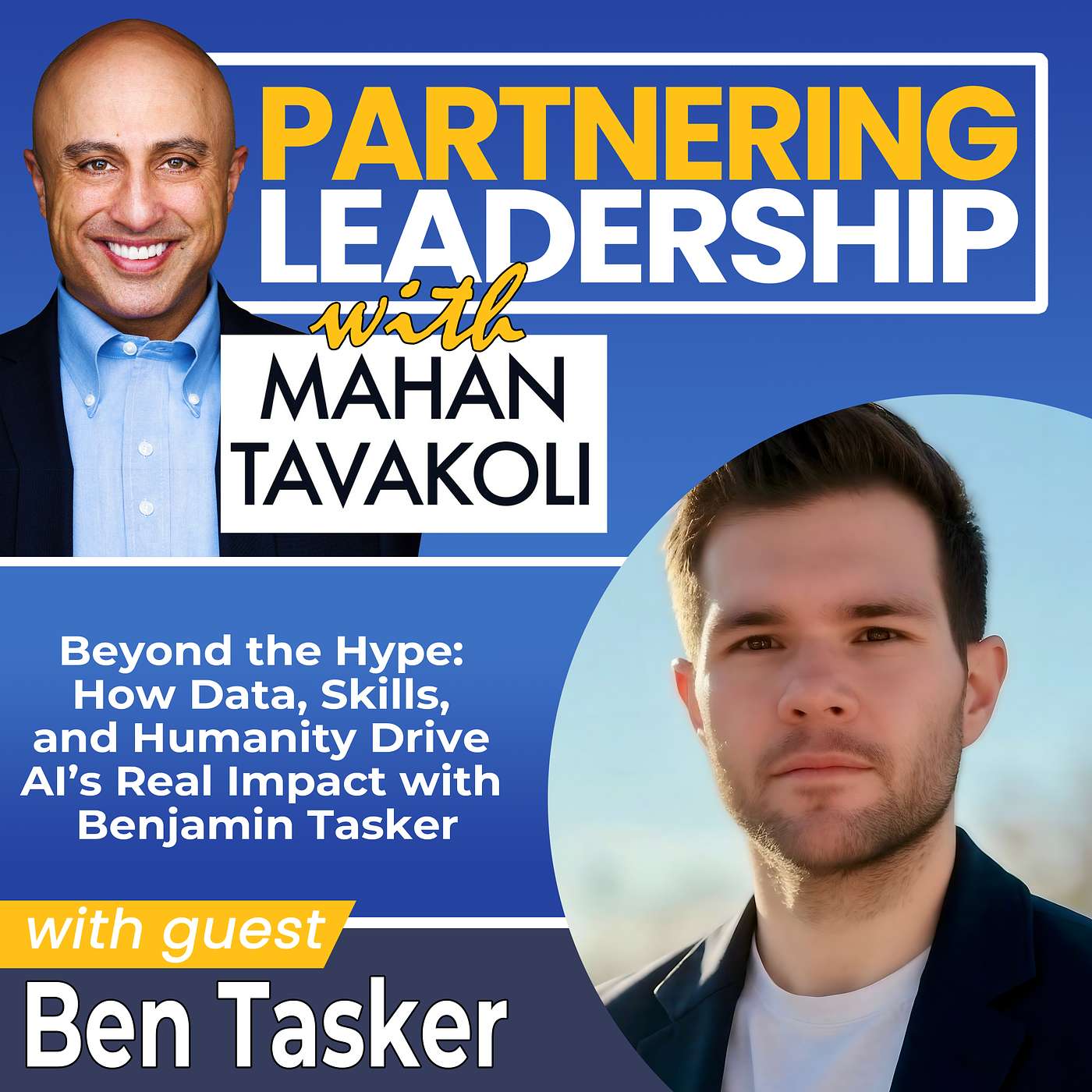Partnering Leadership
Description
Partnering Leadership is a top global podcast designed to help CEOs and senior leaders navigate the complexities of leadership, strategy, culture, and innovation. Hosted by Mahan Tavakoli—a seasoned leadership advisor with over 25 years of experience and recognized as a top thought leader in management—the podcast brings you real-world insights and practical advice to drive meaningful results.
Mahan’s experience as a trusted advisor shapes each discussion, driving deeper insights that challenge conventional thinking and uncover innovative approaches. Drawing from his extensive advisory background, Mahan dives into candid conversations with purpose-driven CEOs and global thought leaders, exploring how they overcame their biggest challenges and achieved transformative success. Each episode provides actionable strategies, real-world examples, and proven approaches to help you navigate change, align teams, and drive lasting impact.
Hear directly from top experts such as Ram Charan, Ken Blanchard, John Kotter, Stephen M.R. Covey, Hal Elrod, Carmine Gallo, Daniel Burrus, Garry Ridge, Jacob Morgan, Emily Field, Jonah Berger, Barbara Kellerman, Rich Diviney, Andrea Sampson, Ajay Agrawal, Dave Ulrich, Jerry Colonna, Renee Cummings, Brian Johnson, Warren Berger, Gustavo Razzetti, Azeem Azhar, David McRaney, Tim Clark, Jim Detert, Gary Bolles, Greg Satell, Robert Wolcott, Alden Mills, Minter Dial, Greg Wooldridge, Pete Steinberg, Joseph Fuller, Paul Roetzer, Whitney Johnson, Ron Adner, Bob Johansen, Leidy Klotz, Paul Smith, Louis Rosenberg, Rob Sadow, Dan Turchin, Steve Robinson, Park Howell, Mark Crowley, Maz Jobrani, LaTonya Wilkins, Rob Cross, Aiden McCullen, Eduardo Briceno, Jan Rutherford, Stephen Wunker, Charlene Li, Jon Levy, Anu Gupta, John Rossman, David Marquet, Tamsen Webster, Jack Phillips, Vanessa Bohns, Patrick McGinnis, Hakeem Oluseyi, Ed Hess, and Carolyn Dewar as well as renowned leaders like David Rubenstein, Jean Case, Tony Pierce, Linda Rabbitt, Paul Daugherty, Richard Bynum, John Veihmeyer, Howard Ross, Bill Novelli, Tien Wong, Stephanie Linnartz, Chuck Robb, Doug Dennerline, Charlene Drew Jarvis, Robert Rosenberg, Diane Hoskins, Deidre Paknad, David Gardner, and Marty Rodgers, and many more!
Their insights, paired with Mahan's expertise, equip you to tackle complex challenges, foster a high-performance culture, and stay ahead in a rapidly evolving world.
Listen today to gain the tools, perspectives, and proven strategies that can transform your leadership journey.
Available on all major podcast platforms or visit https://partneringleadership.com.





![427 [BEST OF] David Ross on Confronting the Storm - Leadership, Hope, and Navigating Wicked Problems in the Age of Uncertainty 427 [BEST OF] David Ross on Confronting the Storm - Leadership, Hope, and Navigating Wicked Problems in the Age of Uncertainty](https://storage.buzzsprout.com/70n6ze1c2svw8ffwtjgnvp4q0ic9?.jpg)
![426 [BEST OF] Mark Schaefer on How Humans Win in an AI Marketing World 426 [BEST OF] Mark Schaefer on How Humans Win in an AI Marketing World](https://storage.buzzsprout.com/f5jd08hoeywp40vpirakfn3o8iu1?.jpg)




![421 [BEST OF] Why Strategy Fails Without the Right Board: Didier Cossin on High Performance Boards & Decision-Making at the Top 421 [BEST OF] Why Strategy Fails Without the Right Board: Didier Cossin on High Performance Boards & Decision-Making at the Top](https://storage.buzzsprout.com/mye8w91eosvd7bfmov9sxadhk8zv?.jpg)













